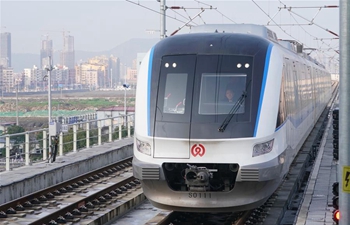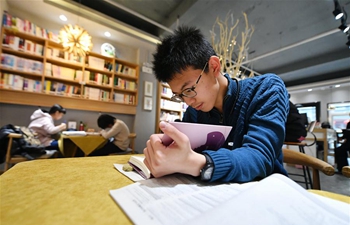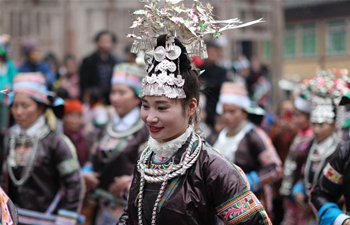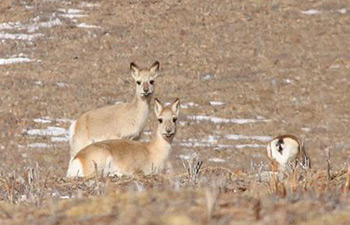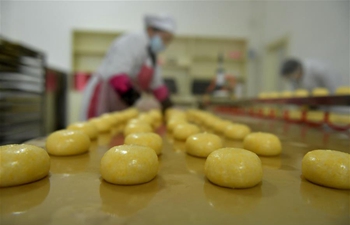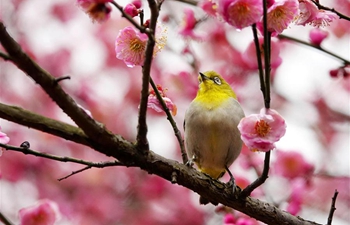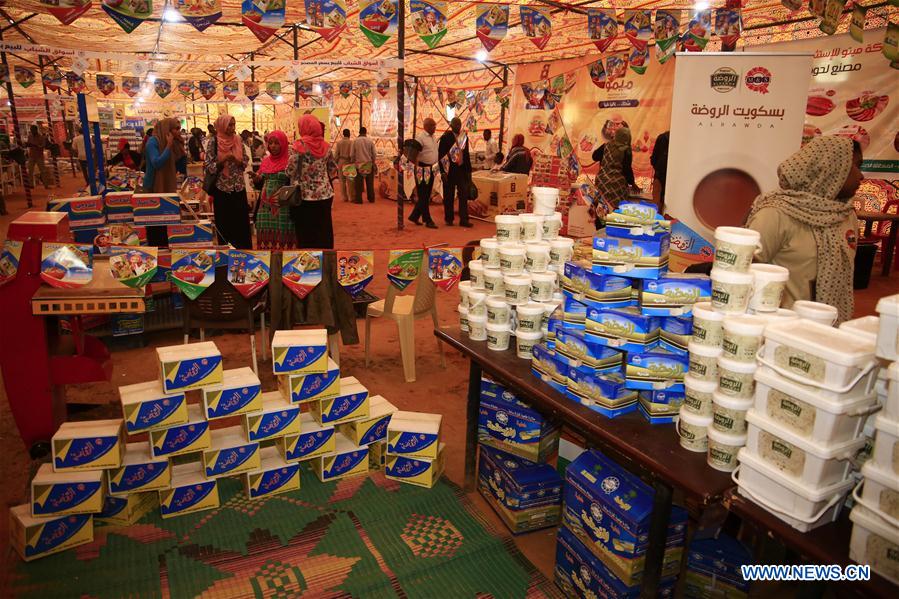
Photo taken on Jan. 17, 2019 shows a market under the Youth Markets initiative in Khartoum, Sudan. Sudan's Prime Minister Mutaz Musa on Thursday inaugurated the "Youth Markets" at the Green Square here as part of community initiatives to address the economic crisis and curb price hike of basic commodities. The Youth Markets, an initiative launched by the National Federation of Sudanese Youth (NFSY), a community organization, is meant to sell basic commodities to consumers at factory prices. (Xinhua/Mohamed Khidir)
KHARTOUM, Jan. 17 (Xinhua) -- Sudan's Prime Minister Mutaz Musa on Thursday inaugurated the "Youth Markets" at the Green Square here as part of community initiatives to address the economic crisis and curb price hike of basic commodities.
The Youth Markets, an initiative launched by the National Federation of Sudanese Youth (NFSY), a community organization, is meant to sell basic commodities to consumers at factory prices.
"Such initiatives are likely to find solutions to the difficult living conditions and rein in the increasing prices," Ja'far Ahmed Abdalla, Khartoum state's minister of industry and trade, told reporters Thursday.
He said these markets would enhance competition and confront some merchants and businessmen who want to control the markets.
NFSY Deputy Chairman Muawiya Yagoub, speaking to Xinhua, said that "the Youth Markets initiative was adopted to address the economic situation."
The initiative aims to establish markets in localities in Khartoum State and other Sudanese states, he added.
He further noted that the main idea behind the Youth Markets is to deliver the goods directly from producers to consumers so as to neutralize brokers who exploit the citizens' needs to make large profits.
He said the NFSY seeks to sustain the initiative to be year-round, wishing the markets would contribute to providing basic commodities at reasonable prices.
Abdul-Rahman Mohamed Ahmed, a Sudanese citizen, told Xinhua that the idea is "excellent," calling for generalizing it.
"It is a good idea, but it should be given more momentum to cover the densely-populated districts and neighborhoods," he noted.
Sudan has been undergoing a dire economic crisis since the secession of South Sudan in 2011, due to which Sudan lost 75 percent of its oil revenues.
Since December 19, 2018, many areas in Sudan, including Khartoum, have been witnessing massive protests over the deteriorating economic conditions and skyrocketing prices of basic commodities.
According to government statistics, 24 people have been killed during the popular protests.

